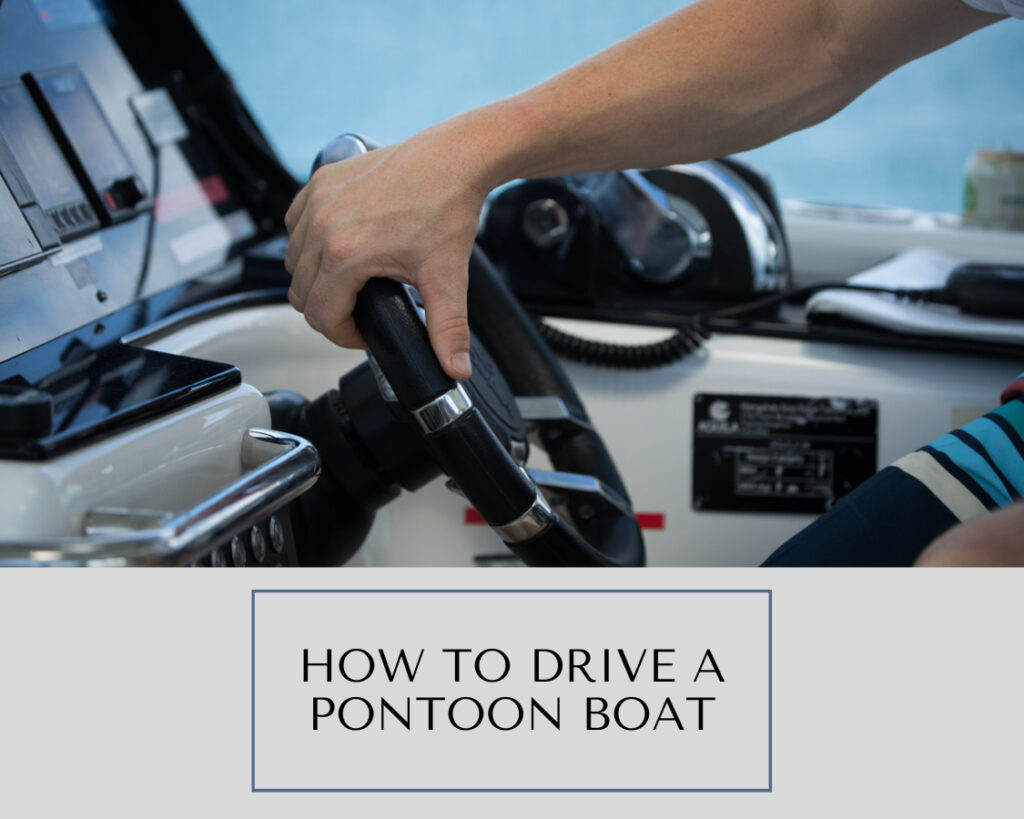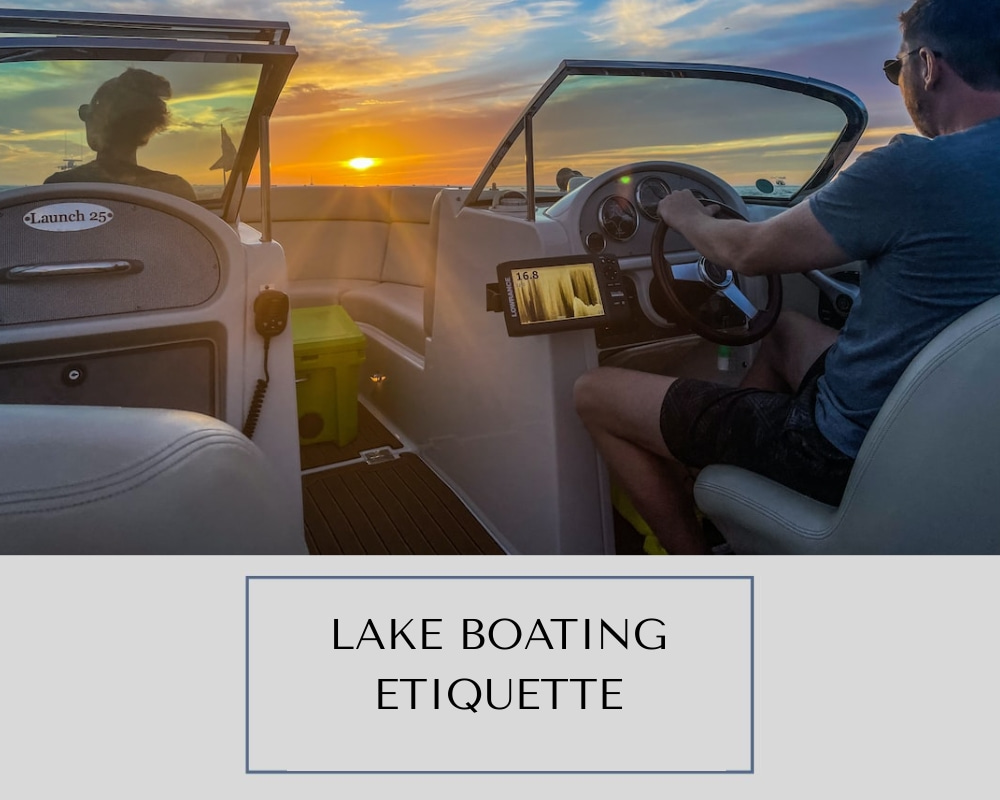Life is full of experiences, and boating is one of those extraordinary adventures that offer a unique sense of freedom. But did you know that not all boating experiences are the same? They significantly differ depending on whether you’re in a serene lake or the majestic ocean. In a tranquil lake, you’ll find calm and serene waters, perfect for leisurely cruises and picnics.
Lakes are often encircled by lush greenery, making them a haven for nature enthusiasts. On the other hand, the vast and boundless ocean offers a grand and awe-inspiring adventure with endless horizons and the chance to encounter marine life in all its glory. Whether you seek tranquility or thrilling challenges, both lake and ocean boating promises unique and unforgettable experiences.
Differences between Lake and Ocean Boating
Here are some key differences between lake and ocean boating:
- Lake boating:
- Generally calmer conditions
- Smaller, more isolated water bodies
- Freshwater environment
- Suitable for smaller boats and water sports
- Less exposure to extreme weather
- Ocean boating:
- Can experience high wave conditions
- Vast, open water bodies
- Saltwater environment
- Suitable for larger, sturdier boats
- Greater exposure to variable weather and tides
Here’s a table summarizing these differences:
| Lake Boating | Ocean Boating |
|---|---|
| Calmer conditions | High wave conditions |
| Smaller, isolated water bodies | Vast, open water bodies |
| Freshwater environment | Saltwater environment |
| Suitable for smaller boats | Suitable for more seaworthy boats |
| Less exposure to extreme weather | Greater exposure to harsh weather |
Similarities between Lake and Ocean Boating
Even though they offer different experiences, lake and ocean boating share several similarities:
- Both require an understanding of navigation skills
- Safety precautions are mandatory for both
- Knowledge of local rules and regulations
- Opportunities for fishing, sightseeing, water sports
- Respect for the environment and local aquatic life
Let’s enumerate this in a table format for better clarity:
| Lake Boating | Ocean Boating |
|---|---|
| Navigation skills | Navigation skills |
| Safety precautions | Safety precautions |
| Local rules | Local rules |
| Fishing opportunities | Fishing opportunities |
| Respect for environment | Respect for environment and marine life |
More About Lake Boating
➣ Geographical Factors
The significance of the geographical factors involved in lake boating cannot be understated. Unlike the open sea or oceans, lakes are usually landlocked, assisting them in resisting extreme weather conditions.
This geographical benefit provides certain stability to their water conditions. The lakes’ relative calm and serene environment enable boaters to navigate waters without having to confront unpredictable waves, thereby fostering a feeling of peace and tranquility.
➣ Boat Types Suitable
When choosing a boat for lake boating, the decision heavily relies on the stability, comfort, and maneuverability that the rig provides. Given the calm and predictable nature of lake waters, different types of smaller boats emerge as ideal choices.
Fishing boats, pontoon boats, and sailboats are some of the most commonly used due to their suitable characteristics for such environments. Not only do these vessels provide adequate ease of control, but they also enable smooth movement across the lake.
➣ Weather Conditions
Lake boating’s weather conditions frequently lean towards the milder side, with predictable wind patterns being a notable advantage for both novice and expert boaters.
However, despite the relative tranquility, it’s important to be aware that sudden storms or strong winds can develop unpredictably. These changes can impact visibility and water conditions, so constant vigilance and regular checks on the weather forecast remain crucial aspects of safe lake boating.
➣ Fishing Possibilities
Lakes are vibrant ecosystems teeming with an abundant variety of freshwater species, thus attracting fishing enthusiasts worldwide. Popular catches include varieties such as bass, trout, and catfish, but the list does not end there.
An excursion on a lake promises a rich fishing experience, introducing boaters to a myriad of aquatic life waiting beneath the surface. It’s not just the activity of fishing that adds to the charm of lake boating but also the opportunity to coexist with nature in a uniquely intimate manner.

More about Ocean Boating
➣ Geographical Factors
The oceanic environment is a vast panorama of constant change and excitement. Unlike the enclosed and finite nature of lakes, oceans are infinite expanses, stretching farther than the eye can see. They are profoundly influenced by large-scale atmospheric patterns, oceanic currents, and gravitational tidal forces resulting from the celestial dance between the Earth, Moon, and Sun.
The ocean’s depth varies significantly, with some areas reaching incredible depths of over 35,000 feet in the Mariana Trench. Additionally, the salinity level in oceans is quite high—about 35 parts per thousand— leading to buoyant boating experiences.
➣ Boat Types Suitable
When boating in the ocean, a more robust and sea-worthy type of boat is required to face the demanding conditions. Preferred choices include larger motorboats, yacht cruisers, large sailboats, and offshore fishing boats designed to withstand the power of waves, wind, and currents. These boats come equipped with reinforced hulls, advanced navigation systems, and powerful engines—a necessity when contending with the might of the ocean.
➣ Weather Conditions
Oceanic weather is a majestic force that commands respect. Due to the vast expanse of the oceans, weather conditions can change swiftly and without warning. Winds can whip up to speed in an instant, currents can shift direction, and waves can grow from ripples to towering walls of water.
Fog can also reduce visibility significantly. Therefore, monitoring weather forecasts from trusted marine sources and understanding weather patterns become paramount.
➣ Fishing Possibilities
When it comes to fishing, the ocean is a world of unlimited possibilities. The enormous biodiversity of saltwater marine life means that the variety of species is staggeringly vast. From catching cod and mackerel in coastal waters to chasing gigantic blue marlin and yellowfin tuna in deeper seas—the thrill of saltwater fishing is unparalleled. Many ocean boaters revel in this exciting challenge, making it a popular boating activity.

Navigating Safety Concerns
➣ For Lake Boating
Lake boating, while serene and tranquil, still requires diligence and responsibility. This means ensuring that all participants wear life jackets, understand basic safety rules, and know how to swim. Maximum speed limits need to be strictly adhered to, eliminating the risk of collisions with other vessels or water users.
Knowledge of local regulations is paramount—for example, rules for approaching other vessels, understanding lake markers, or knowing where it’s safe to swim.
➣ For Ocean Boating
Boasting in the ocean demands a heightened degree of safety, given the unpredictable nature of the seas. Apart from general boating precautions, ocean boaters must have an efficient communication system to connect with the coastguard if needed.
Navigational systems, knowledge of marine weather forecasts, and the ability to recognize warning signs of changing weather are crucial. Appropriate anchoring protocols, understanding shipping routes, maintaining suitable distances from the shore, and maintaining the boat in seaworthy condition are additional requirements for ensuring safety.

Regulations and Legalities
➣ For Lake Boating
Lake boating is subject to local regulations set by state, local, or private authorities. These can often be quite specific, involving speed limits, noise restrictions, jetty regulations, fishing laws, and permitted boating areas. Some lakes may prohibit motorized boats altogether, while others may restrict usage during certain times of the year. Understanding these rules and laws is crucial to ensure a hassle-free boating experience.

➣ For Ocean Boating
With ocean boating, the regulatory network is complex and encompasses international maritime laws and regional maritime regulations. Rules cover shipping lanes, right of way, rescue obligations, secure communication protocols, environmental protection laws (like dumping of waste), and much more.
Compliance with these laws is necessary for every boater to ensure safety, respect mutual rights, and minimize harmful consequences to the marine environment.

Preparation and Precaution
➣ For Lake Boating
Preparations for lake boating start with a thorough inspection of the boat to ensure all systems are functional. It’s wise to check the local weather forecast to avoid getting caught in unexpected showers or storms. It is essential to confirm that all safety equipment—including life vests, first aid kits, fire extinguishers, buoys, and navigation lights—is on board and functional. Also, keep an updated lake map for successful navigation.

➣ For Ocean Boating
Preparations for ocean boating are much more rigorous and extensive. It begins with a comprehensive check of engines, hull integrity, fuel and oil status, and all onboard systems. Closely examine the marine weather forecast, tide tables, and potential sea route challenges. Always have a voyage plan and communicate it to someone ashore. Having emergency rations, extra fuel, freshwater, and various distress signals is crucial.

Closing Thoughts
Whether lakes’ tranquility calls out to you or the ocean’s vastness draws you in, there is an undeniable magic to unfurling the sails or turning on the engine to set off into the waters. Understanding the unique characteristics of each environment—the calmness and easy accessibility of lakes, as contrasted with the challenging, profound depths and infinite horizons of the ocean—can only contribute to a deeper respect for the world of boating. The invigorating rush of the wind, the splash of water against the hull, and the mesmerizing play of light on the water’s surface—it’s the same underlying adventure played out on different stages.



